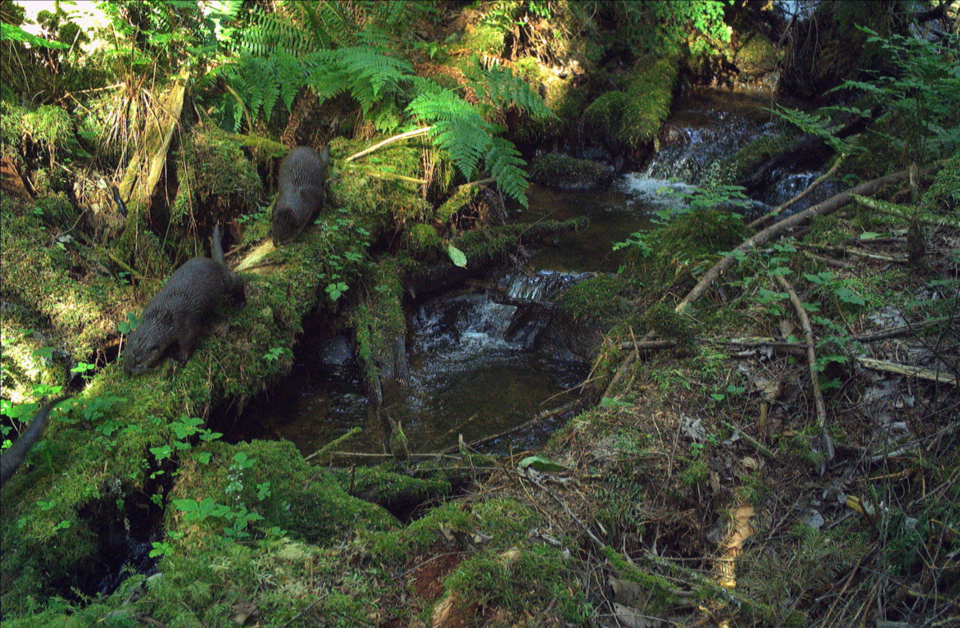This year at the PNE, I took the kids’ train ride past the kiosks, midway, and food trucks, much to the grins of exhibition fun-seekers who waved at the old lady (me) sitting in front.
The train tooted through a small patch of lush, green forest, the original habitat of the area, called the Sanctuary, as busy city streets bordered it.
This is the future, I thought at the time.
Unless we smarten up and stop over-development, folks will have to take a tourist train to get a glimpse of nature in its natural form.
And in the far future, through holograms.
“Oh, Mercy, Mercy me (The Ecology),”the lament by late 1970s singer Marvin Gaye, came to mind.
“What about this overcrowded land?
How much more abuse from man can she stand?”
Consider what wildlife faces when their homes are bulldozed and built over.
With this thought, it was reassuring to attend a recent lecture at the Squamish Public Library by environmentalist Katherine Andy, SFU graduate student in the Resource and Environmental Management Program.
She spoke of her year-long wildlife research project in the Squamish area.
In her address, “Take a walk by the river: Exploring how mammals use streamside habitat in Squamish,” she invited attendees to perceive through an animal’s eyes.
She outlined how wildlife in search of shelter, food, water, reproductive opportunities, refuge from predators and natural catastrophes, like floods and fires, must adapt and/or move from unsuitable to more suitable living environments.
Her research involved gathering 600,000 photo images from 36 motion-sensitive camera tracts (72 including Maple Ridge), capturing shots of sniffing bears and scooting coyotes.
Knowing more about where the animals are located—from raccoons to bears, birds and frogs—helps in their survival and/or possible migration.
Cameras identified which animal gravitates to what type of habitat, be it plant, riparian (by streams and upland areas) or other vegetation.
Her research suggested the need to provide wider movement corridors and pathways.
Currently, only a meagre 30 metres are allowed on each side of a stream in developed areas.
Considering that some species thrive close to humanity, deterring development density could encourage thriving natural habitat and a healthier ecosystem.
Stewardship strategies and management plans per species, considering their preferences, would be good. In general, it suggests recognizing and taking responsibility for our actions.
Research done was in collaboration with the District of Squamish, Squamish Nation, B.C. Parks, and the Squamish Environment Society.
One can take heart that environmental researchers like Andy are bringing the plight and importance of wildlife survival into focus.
Melody Wales is a veteran writer and Squamish local.



